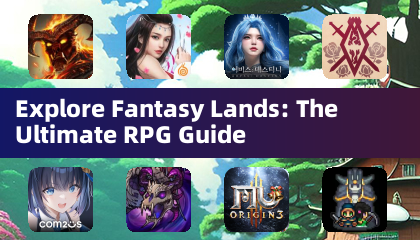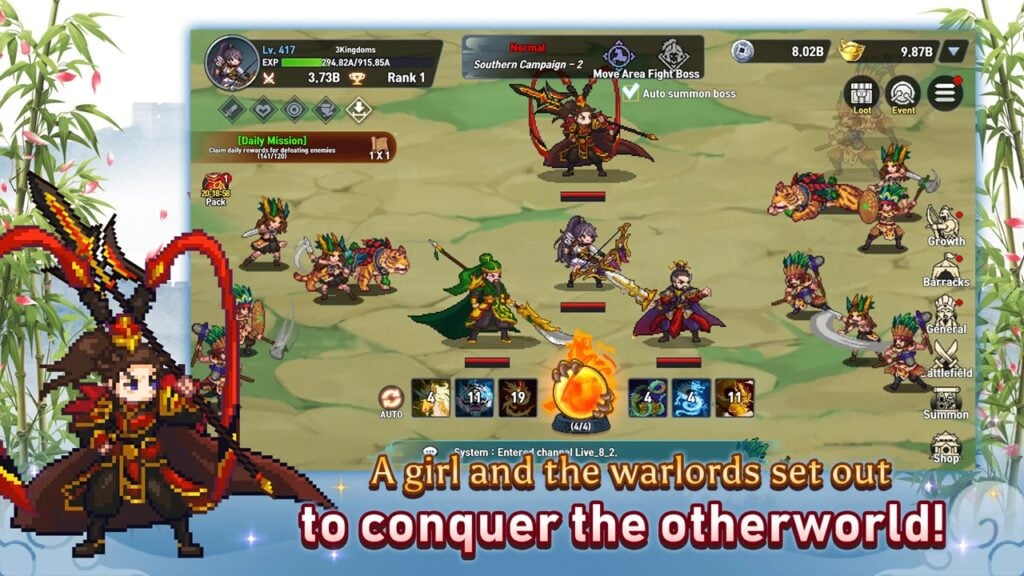Civilization 7 introduces significant changes to the series, including the Ages mechanic that allows you to transition your civilization through Antiquity, Exploration, and Modern Ages. However, your chosen leader remains constant throughout the game. Leaders in Civilization 7, while not as diverse in traits and units as civilizations, offer powerful abilities that can create effective combinations. This tier list focuses on the strengths and weaknesses of each leader, aiding you in selecting the best leader for your empire as it evolves into the Modern Age.
Note: This tier list is designed for standard, single-player games of Civilization 7 and does not consider synergies with civilizations or include DLC leaders like Ada Lovelace or Simón Bolívar.
Civilization 7 Leader Tier List
S-Tier - Confucius, Xerxes King of Kings, Ashoka World Conquerer, Augustus
A-Tier - Ashoka World Renouncer, Benjamin Franklin, Charlemagne, Harriet Tubman, Hatshepsut, Himiko High Shaman, Isabella, Jose Rizal, Machiavelli, Trung Trac, Xerxes The Achaemenid
B-Tier - Amina, Catherine The Great, Friedrich Oblique, Ibn Battuta, Lafayette, Napoleon Emperor, Napoleon Revolution, Tecumseh, Himiko Queen of Wa
C-Tier - Friedrich Baroque, Pachacuti
S-Tier Leaders
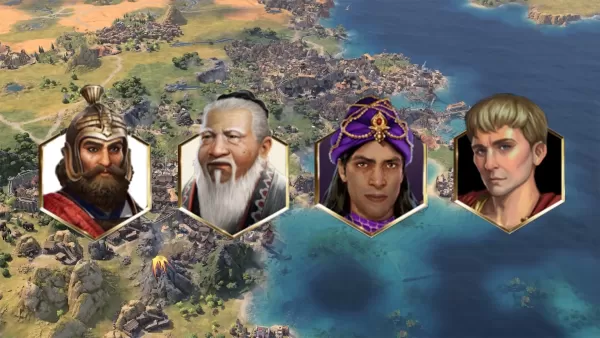
S-Tier: Ashoka, World Conquerer
Ashoka, World Conquerer, excels at maintaining happiness within your civilization while dominating others. With +1 Production for every 5 excess Happiness in Cities and +10% Production in Settlements not founded by you, you can build a robust army and infrastructure. Declaring a Formal War grants a Celebration, boosting your units' Combat Strength by +5 against Districts. This makes Ashoka a formidable leader for aggressive expansion, especially when managing conquered settlements' unrest effectively.
S-Tier: Augustus
Augustus focuses on expanding through settlements, enhancing your Capital's Production by +2 for every Town. You can purchase Culture Buildings in Towns and enjoy a 50% discount on building purchases. Augustus thrives by establishing numerous Towns, either through settlement or conquest, without upgrading them to Cities. This strategy maximizes Gold and Production, creating a powerful central hub while saving resources.
S-Tier: Confucius
Confucius is ideal for rapid city expansion with a +25% Growth Rate in Cities. Additionally, +2 Science from Specialists allows Confucius to advance technologically faster than competitors. This leader is perfect for land-grabbing and securing key Resources early on, although you may need to bolster your defenses or form alliances to protect your expanding territory.
S-Tier: Xerxes, King of Kings
Xerxes, King of Kings, is a straightforward leader focused on military conquest. With +3 Combat Strength for units attacking in neutral or enemy territory, and bonuses of 100 Culture and Gold per Age upon capturing a Settlement, Xerxes thrives on aggression. The increased Settlement limit per Age further supports this strategy, making Xerxes an excellent choice for those pursuing a Military Victory.
A-Tier Leaders
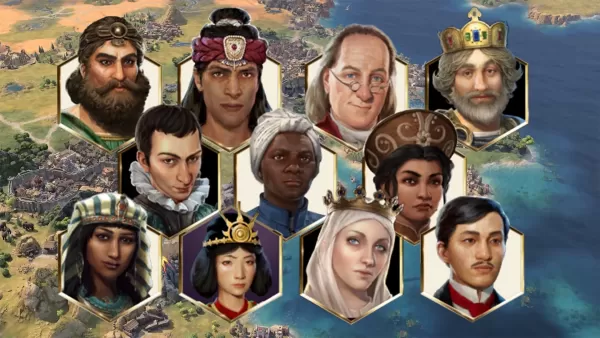
A-Tier: Ashoka, World Renouncer
Ashoka, World Renouncer, converts Happiness into population growth, offering +1 Food in Cities for every 5 excess Happiness and +10% Food in all Settlements during a Celebration. All buildings gain +1 Happiness adjacency for Improvements, making Ashoka suitable for players who prefer land expansion and city management over military conquest.
A-Tier: Benjamin Franklin
Benjamin Franklin is a versatile leader for Science-focused players. With +1 Science per Age on Production Buildings in Cities and a 50% Production boost towards constructing these buildings, Franklin can quickly advance in technology and production. Additionally, +1 Science per Age for active Endeavors you started or supported, and the ability to have two Endeavors of the same type active at once, make him a strong choice for scientific progress.
A-Tier: Charlemagne
Charlemagne combines Military and Science effectively. Military and Science Buildings gain Happiness adjacency for Quarters, and entering a Celebration grants two free Cavalry Units with +5 Combat Strength. This strategy is particularly potent in the early and mid-game, although it may face challenges in the Modern Age against advanced units like Tanks and Planes.
A-Tier: Harriet Tubman
Harriet Tubman excels in espionage and defense, with +100% Influence towards Initiating Espionage Actions and 5 War Support on all wars declared against you. Units ignore movement penalties from Vegetation, making Harriet a stealthy and resilient leader capable of disrupting opponents while maintaining a strong defensive stance.
A-Tier: Hatshepsut
Hatshepsut benefits from trade, gaining +1 Culture for every imported Resource and +15% Production towards constructing Buildings and Wonders near Navigable Rivers. This leader is ideal for early Culture Legacy Paths, requiring strategic placement of cities to maximize these benefits.
A-Tier: Himiko, High Shaman
Himiko, High Shaman, is a top Culture producer, with +2 Happiness per Age on Happiness Buildings and a 50% Production boost towards constructing them. A +20% Culture boost, which doubles during Celebrations, is offset by a -10% Science penalty. Himiko is perfect for players aiming for the Cultural Legacy Path, requiring careful management of Science resources.
A-Tier: Isabella
Isabella can gain significant early-game advantages by discovering Natural Wonders, receiving 300 Gold and doubled rewards in Distant Lands. With +100% additional tile yields from Natural Wonders and reduced costs for Naval Units, Isabella can dominate if Natural Wonders are strategically located within her reach.
A-Tier: Jose Rizal
Jose Rizal excels in utilizing Celebrations, with a 50% increase in Celebration duration and +50% Happiness towards Celebrations. Additional Culture and Gold from Narrative Events further enhance his cultural focus, making him a strong choice for players aiming for frequent and prolonged Celebrations.
A-Tier: Machiavelli
Machiavelli is ideal for players who enjoy diplomatic and military manipulation. With +3 Influence per Age and Gold rewards from Diplomatic Actions, Machiavelli can swiftly build military forces. The ability to ignore Relationship requirements for declaring Formal Wars and levy units from City-States not under your control makes Machiavelli a deceptive and potent leader.
A-Tier: Trung Trac
Trung Trac is perfect for leveraging Army Commanders, starting with three free Levels and a 20% Commander experience boost. A 10% Science bonus in Tropical Spaces, doubled during Formal Wars, makes Trung Trac a powerful leader for players focusing on military and technological advancement in tropical environments.
A-Tier: Xerxes, The Achaemenid
Xerxes, The Achaemenid, offers a balanced approach with increased Trade Route limits and significant Culture and Gold gains from creating Trade Routes or Roads. Additional Culture and Gold per Age on Unique Buildings and Improvements make Xerxes a strong choice for players aiming for an Economic Victory.
B-Tier Leaders
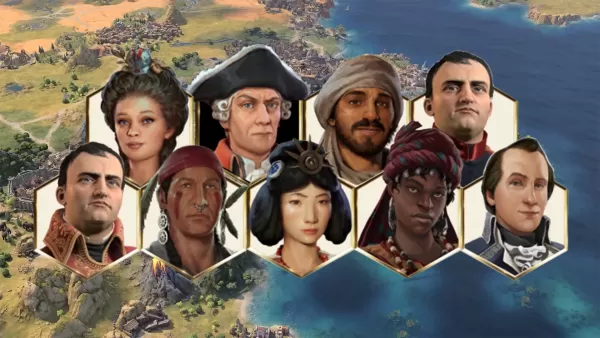
B-Tier: Amina
Amina enhances resource management with +1 Resource Capacity in Cities and +1 Gold per Age for each Resource assigned. A +5 Combat Strength bonus in Plains or Desert can be situational but valuable in the right context, making Amina a solid choice for resource-focused strategies.
B-Tier: Catherine the Great
Catherine the Great boosts Culture through Great Works, with +2 Culture per Age on displayed works and additional slots for Great Works. Settling cities in Tundra provides Science based on Culture output, making Catherine effective in specific map conditions.
B-Tier: Friedrich, Oblique
Friedrich, Oblique, enhances Army Commanders with the Merit Commendation and grants an Infantry Unit upon constructing a Science Building. While strong in military contexts, Friedrich lacks direct boosts to Science, Influence, or Culture, limiting his overall impact.
B-Tier: Ibn Battuta
Ibn Battuta offers flexibility with 2 Wildcard Attribute Points after the first Civic in every Age and increased sight for all Units. The unique Trade Maps Endeavor allows visibility of other leaders' explored areas, making Ibn Battuta a versatile leader requiring strategic use of Attribute Points.
B-Tier: Lafayette
Lafayette provides additional Social Policy Slots through the Reform Endeavor and +1 Combat Strength for each Tradition slotted into Government. With unconditional Culture and Happiness boosts in Settlements, especially in Distant Lands, Lafayette is a well-rounded leader but lacks standout traits.
B-Tier: Napoleon, Emperor
Napoleon, Emperor, gains Gold from being Unfriendly or Hostile with other leaders and can disrupt trade with the Continental System Sanction. While effective at irritating opponents, Napoleon requires careful management of relationships and a strong military to mitigate potential backlash.
B-Tier: Napoleon, Revolutionary
Napoleon, Revolutionary, boosts land unit movement and provides Culture when defending against enemy units. This leader's unique playstyle requires frequent defensive engagements to maximize Culture gains, making him a challenging but potentially rewarding choice.
B-Tier: Tecumseh
Tecumseh offers bonuses to Food, Production, and Combat Strength for each City-State you are Suzerain of. While powerful, becoming a Suzerain requires significant Influence and time, making Tecumseh a long-term investment.
B-Tier: Himiko, Queen of Wa
Himiko, Queen of Wa, thrives on positive relationships, gaining Science from being Friendly or Helpful with other leaders. The Friend of Wei Endeavor further boosts Science with allies, but maintaining these relationships requires careful diplomacy to avoid becoming a target.
C-Tier Leaders
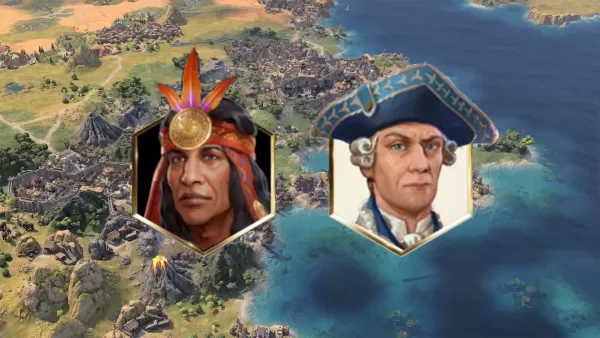
C-Tier: Friedrich, Baroque
Friedrich, Baroque, gains a Great Work upon capturing a Settlement and an Infantry Unit upon constructing a Culture Building. These traits are situational and lack the impact needed to compete with stronger leaders in the game.
C-Tier: Pachacuti
Pachacuti's effectiveness hinges on proximity to Mountains, gaining +1 Food adjacency for Buildings and no Happiness maintenance for Specialists near Mountains. While potentially powerful, Pachacuti's dependence on specific map features makes him a risky choice without favorable terrain.




